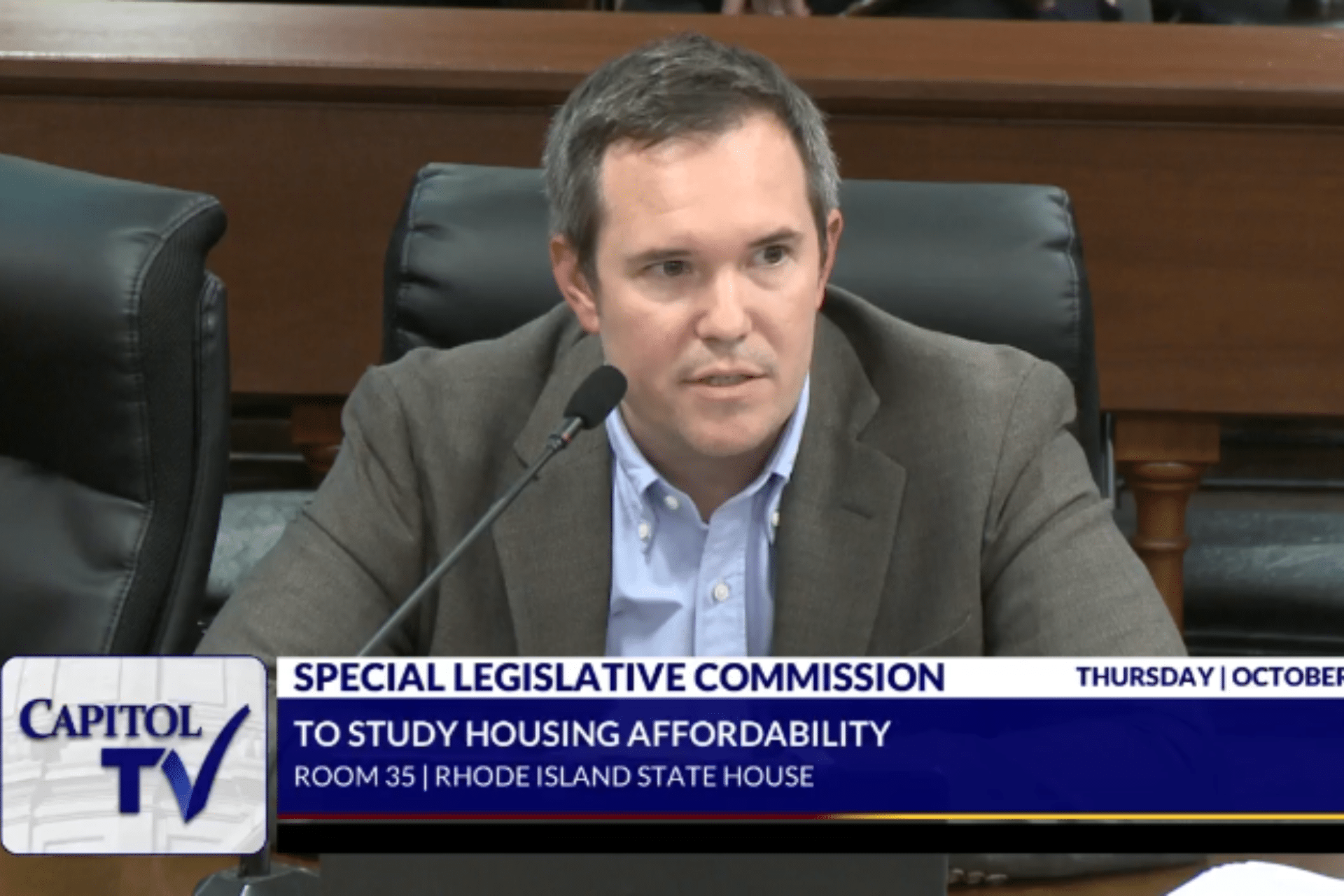Housing Solutions Lab
Helping cities plan, launch, and evaluate equitable housing policies
On this page
Rhode Island Public Development Study
October 17, 2024
Researchers at the NYU Furman Center and its Housing Solutions Lab won an award in January 2024 to analyze newly emerging and longer-standing models of public development and to study the feasibility of these approaches in Rhode Island.

In the image: Matthew Murphy, NYU Furman Center’s Executive Director, testified before the Rhode Island Special Legislative Commission to Study Housing Affordability on October 17, 2024, presenting the findings of the NYU Furman Center’s report on emerging and longer-standing models of publicly driven development and ownership in the United States and internationally.
Overview
Public development and ownership involve cases where local or state agencies invest significantly in exchange for a substantial, active stake in the development and operations of housing. Agencies act as real estate developers or engage closely with development partners and serve as long-term owners of the housing or the land it’s built on. Models of public development are attracting renewed attention as a way to produce durably affordable housing.
In consultation with the Rhode Island Department of Housing and the Rhode Island Housing and Mortgage Finance Corporation (“RIHousing”), we conducted a scan of such models in the U.S. and abroad, and of the financing and regulatory tools they use. We also studied how Rhode Island could apply these approaches and what key considerations it should take into account. The study team produced an interim and final report and briefed Rhode Island Governor Daniel McKee and a member of the state legislature on our findings.
The report identifies three types of public development models in the United States. Mixed-income housing models, like the widely publicized program pioneered by Montgomery County, Maryland, typically use revolving loan funds to replace private equity in the construction financing for large, mixed-income developments, and in turn, secure a public stake in these projects. Other jurisdictions, like Boston and Hawaii, have pursued public housing conversions, redeveloping and expanding existing public housing using federal and other subsidies. The report also highlights long-running programs for developing new affordable housing without market-rate units using creative funding models, focusing on Idaho and Dakota County, Minnesota.
The study also explores models from Vienna, Helsinki, Copenhagen, Singapore, and Hong Kong. These models vary greatly due to different political and economic contexts but offer valuable lessons on cost-based rents, the use of public land, and the role of nonprofits in housing development.
Study purpose and methods
Rhode Island is experiencing a significant housing shortage, especially in multifamily rental housing that is affordable to low- and very low-income households. The state also ranks among the lowest in the U.S. for housing production. One proposal for addressing these issues is to create or utilize a government entity to play the role of affordable housing developer and owner. While public development was at one point a major source of affordable housing in the U.S., these efforts have been gradually limited and defunded over the last 50 years. Our report provides insights into the feasibility of public development and ownership models as a means of delivering affordable housing in Rhode Island through 1) a scan of both longstanding and newly emerging models of public development within the U.S. and internationally; 2) analysis of the Rhode Island development context; and 3) a review of financing and regulatory mechanisms that could facilitate public development in Rhode Island.
We drew on interviews with more than 20 federal, state, and local policymakers and practitioners across the country, as well as scholars in Vienna, Finland, and Denmark, to understand nine domestic and five international models of public development. We also reviewed programmatic documents and underwriting data and analyzed eleven financing and regulatory mechanisms used in these models. We partnered with Forsyth Street Advisors to model the feasibility of applying these tools in the context of Rhode Island’s market conditions.
Policy contributions
We built on our partnership with Rhode Island to develop a new set of resources for jurisdictions to understand different models of public development and the tools they use. Policymakers can explore selected public developer models via an interactive map and detailed case studies, access a modeling tool to better understand the financial feasibility of public development in their jurisdiction, and learn more about the financial and regulatory tools that public developers use.